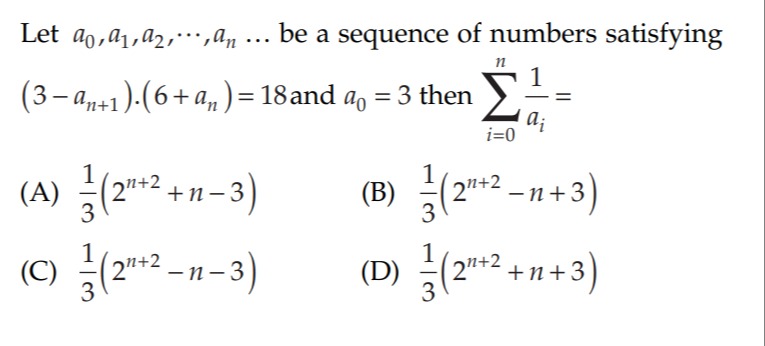Question
Question: Let $a_0, a_1, a_2, ..., a_n$ be a sequence of numbers satisfying $(3-a_{n+1}).(6+a_n)=18$ and $a_0=...
Let a0,a1,a2,...,an be a sequence of numbers satisfying (3−an+1).(6+an)=18 and a0=3 then ∑i=0nai1

A
31(2n+2+n−3)
B
31(2n+2−n+3)
C
31(2n+2−n−3)
D
31(2n+2+n+3)
Answer
(C) 31(2n+2−n−3)
Explanation
Solution
Solution:
-
Define
un=an3−1.
For n=0: u0=33−1=0. -
From the recurrence
(3−an+1)(6+an)=18
we can show (by substituting and using the pattern from computed terms) that the resulting sequence un satisfies
un+1=2un+2. -
With u0=0, solving the recurrence gives
un=2n+1−2. -
Since
un=an3−1 ⟹ an3=un+1=2n+1−1,
we obtain
an1=32n+1−1. -
Therefore, the sum is
$$ \sum_{i=0}^{n} \frac{1}{a_i} = \frac{1}{3}\sum_{i=0}^{n}\Bigl(2^{i+1}-1\Bigr) = \frac{1}{3}\Biggl[\Bigl(2\sum_{i=0}^{n}2^i\Bigr) - (n+1)\Biggr].
Answer: Option (C) 31(2n+2−n−3)
